Related Research Articles

Scarface is a 1932 American pre-Code gangster film directed by Howard Hawks and produced by Hawks and Howard Hughes. The screenplay, by Ben Hecht, is based loosely on the 1929 novel by Armitage Trail, which was inspired by Al Capone. The film stars Paul Muni as Italian immigrant gangster Antonio "Tony" Camonte who violently rises through the Chicago gangland, with a supporting cast that includes George Raft and Boris Karloff. Camonte's rise to power dovetails with his relentless pursuit of his boss's mistress while his own sister pursues his best hitman. In an overt tie to the life of Capone, one scene depicts a version of the Saint Valentine's Day Massacre.
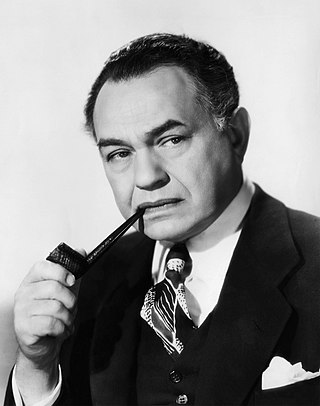
Edward G. Robinson was a Romanian-American actor of stage and screen, who was popular during Hollywood's Golden Age. He appeared in 30 Broadway plays and more than 100 films during a 50-year career and is best remembered for his tough-guy roles as gangsters in such films as Little Caesar and Key Largo. During his career, Robinson received the Cannes Film Festival Award for Best Actor for his performance in House of Strangers.

Edward Santree Brophy was an American character actor and comedian, as well as an assistant director and second unit director during the 1920s. Small of build, balding, and raucous-voiced, he frequently portrayed dumb cops and gangsters, both serious and comic.

Pre-Code Hollywood (1927–1934) was the brief era in the American film industry between the widespread adoption of sound in film in 1929 and the enforcement of the Motion Picture Production Code censorship guidelines, popularly known as the Hays Code, in mid-1934. Although the Code was adopted in 1930, oversight was poor, and it did not become rigorously enforced until July 1, 1934, with the establishment of the Production Code Administration (PCA). Before that date, film content was restricted more by local laws, negotiations between the Studio Relations Committee (SRC) and the major studios, and popular opinion, than by strict adherence to the Hays Code, which was often ignored by Hollywood filmmakers.

Cleopatra is a 1917 American silent historical drama film based on H. Rider Haggard's 1889 novel Cleopatra, the 1890 play Cleopatre by Émile Moreau and Victorien Sardou, and the play Antony and Cleopatra by William Shakespeare. The film starred Theda Bara in the title role, Fritz Leiber Sr. as Julius Caesar, and Thurston Hall as Mark Antony.
Joyce Coad was a child actress in motion pictures.
Jill Dennett was a motion picture actress in Hollywood movies for a decade, beginning in 1932. She appeared in more than twenty films, all of the appearances in uncredited roles. She was a talented dancer and singer. Born in New York and died in Los Angeles, California at the age of 56. under the name of Edythe Jill Barnes.

Lydia Knott was an American actress of the silent film era. She appeared in more than 90 films between 1914 and 1937.

Jack La Rue was an American film and stage actor.
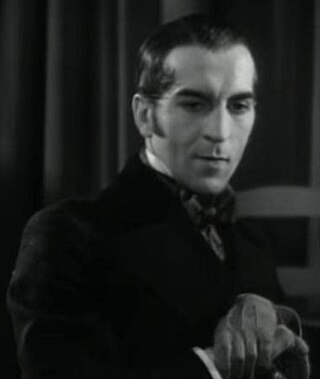
Ralf Harolde was an American character actor who often played gangsters. Between 1920 and 1963, he appeared in 99 films, including Smart Money with Edward G. Robinson and James Cagney, Jimmy the Gent with James Cagney and Bette Davis, Night Nurse with Barbara Stanwyck and Clark Gable, I'm No Angel with Mae West, Baby Take a Bow with Shirley Temple, A Tale of Two Cities with Ronald Colman, Our Relations with Laurel and Hardy, and Murder, My Sweet with Dick Powell.
Harry C. Neumann of Chicago, Illinois, was a Hollywood cinematographer whose career spanned over forty years, including work on some 350 productions in a wide variety of genres, with much of his work being in Westerns, and gangster films.
John Altschuler is an American television and film writer and producer known for his collaborative projects with Mike Judge and Dave Krinsky.
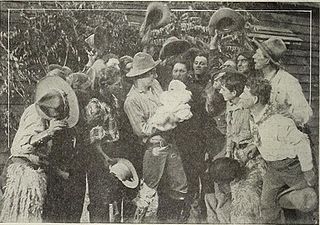
Life's Shop Window is a 1914 American silent drama film directed by J. Gordon Edwards and starring Claire Whitney and Stuart Holmes. It is a film adaptation of the 1907 novel of the same name by Annie Sophie Cory. The film depicts the story of English orphan Lydia Wilton (Whitney), and her husband Bernard Chetwin (Holmes). Although Wilton's marriage is legitimate, it was conducted in secret, and she is accused of having a child out of wedlock. Forced to leave England, she reunites with her husband in Arizona. There, she is tempted by infidelity with an old acquaintance, Eustace Pelham, before seeing the error of her ways and returning to her family.

Bobbie Stoffregen, known professionally as Jayne Regan, was an American film actress. Her original name was sometimes seen as Bobby Stoffregen.

Laurence Criner born John Laurence Criner, occasionally credited as J. Lawrence Criner, was an actor in the United States. An African-American, he had numerous film roles including as the male lead and star.
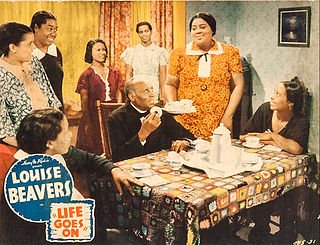
Leo C. Popkin (1914–2011) was a film director and producer in the United States. His brother Harry M. Popkin was the executive producer of Million Dollar Productions, a partnership that included Ralph Cooper.

Million Dollar Productions was a movie studio in the United States active from 1937 until 1940. It was established to produce films with African American casts. It was a partnership between Harry M. Popkin, Leo C. Popkin and Ralph Cooper.
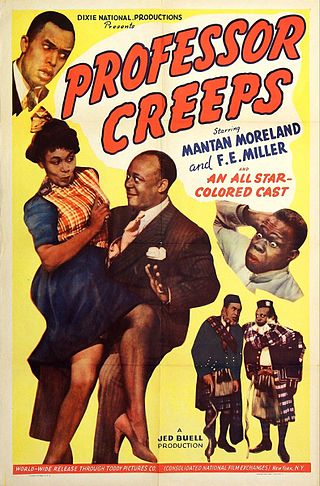
Toddy Pictures Company was a film distribution and production company. It was founded in 1941 by Ted Toddy (1900-1983) in a consolidation of his film businesses under the new name. The film company specialized in African-American films.
Reginald Hartley Fenderson was an American actor in theatrical productions and films in the United States. He appeared in various films with African American casts in the 1930s and 1940s.
Tom Southern, also known as Tommy or Thomas Southern, was an actor in American film and stage productions as well as a songwriter. He was a theater actor with the Lafayette Players.
References
- 1 2 "Bargain With Bullets (1937)". December 4, 1937. p. 7 – via newspapers.com.
- ↑ "BARGAIN WITH BULLETS". Library of Congress.
- ↑ Butters, Gerald R. (September 8, 2007). Banned in Kansas: Motion Picture Censorship, 1915-1966. University of Missouri Press. ISBN 9780826266033 – via Google Books.
- ↑ "Bargain With Bullets (1937)". October 30, 1937. p. 24 – via newspapers.com.